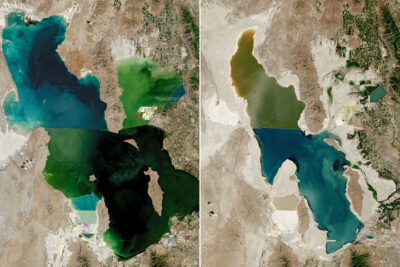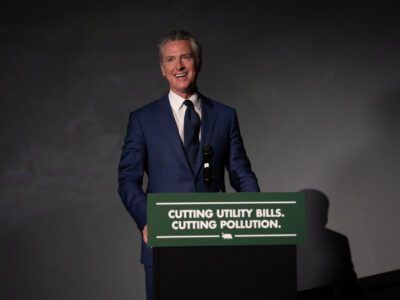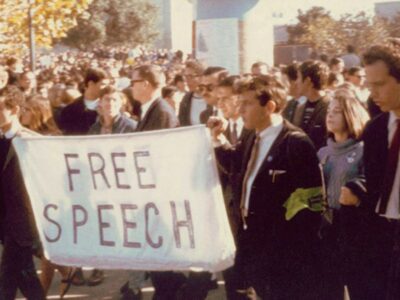“Salt Lakes in Crisis: Legal Responses to Ecological Catastrophes”
Upcoming U.C. Davis Law Review Symposium To Provide Interdisciplinary Focus On Threatened Western U.S. Lakes

On Friday, September 20th, the student-run U.C. Davis Law Review will host a most timely conference examining an environmental crisis facing many of the American West’s iconic “terminal lakes.”
That term refers to lakes that have no natural outlet. For many years, protracted droughts and human diversions from freshwater rivers and streams feeding those lakes have combined to reduce lake levels dramatically and significantly increase their salinity (i.e., salt content). These alarming trends have in turn triggered crashing ecosystems, dramatic reductions or even elimination of fish and wildlife resources, public health problems including toxic air pollutants, and the loss of cultural resources treasured by Native American communities.
The upcoming, day-long conference at U.C. Davis School of Law (a.k.a. King Hall) will provide an interdisciplinary examination of these looming environmental disasters. Among the scheduled speakers are environmental law professors, public officials, practicing attorneys, environmental advocates, scientists, environmental journalists and tribal representatives.
The threatened Western terminal lakes that will be analyzed and discussed in detail at the September 20th Symposium include:
-
- California’s Salton Sea, Owens Lake and Mono Lake;
- Walker Lake in Nevada; and
- Utah’s Great Salt Lake.
The U.C. Davis Law Review Editors provide more background about the upcoming Symposium, observing:
“`Salt Lakes in Crisis: Legal Responses to Ecological Catastrophes’ addresses the challenges faced by terminal lakes across the West. The Symposium will tackle important issues such as the public trust doctrine, air quality, endangered species, migratory birds, human health, environmental justice and tribal impacts. In the same way the U.C. Davis Law Review laid the foundation for the California Supreme Court’s iconic 1983 National Audubon (“Mono Lake”) decision through a U.C.D. Law Review Symposium in 1980, we hope this Symposium will assist advocates in Utah and throughout the West to develop legal tools to prevent lakes from going into critical failure.”
More information about the Symposium, including the schedule, speakers, etc., can be found here. Those interested in attending this free event–in person or virtually–can register through this link. California attorneys who attend the Symposium may also receive free MCLE credit.
Finally, those who have further questions about the September 20th Symposium should email the U.C. Davis Law Review organizers at ucd.lawrev.symp@gmail.com .







Reader Comments